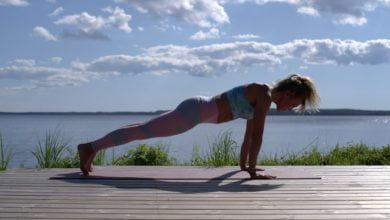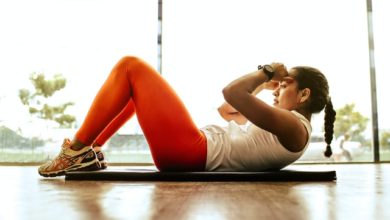Do testosterone boosters actually work?

Do testosterone boosters actually work?
It’s a simple but fair assumption, which is that most men are somewhat obsessed with testosterone boosters. Testosterone is a vital hormone that plays an imperative role in proper function and hormone regulation, muscle development, and sex drive. It also affects everything from mood, memory, building muscle, and improving recovery. But when it comes to testosterone boosting supplements, the question is, do they really work?
As the term goes, not all supplements are created equal and when it comes to testosterone boosters, the phrase still applies. It is true that testosterone boosters can increase natural testosterone production, improve body composition, and enhance overall vitality. However, getting the right ingredients in the right doses is what makes the difference.
We will discuss some of the best testosterone boosting ingredients that you need, to boost your natural testosterone levels so you can improve performance, in more ways than one.
What is testosterone
Testosterone is an androgenic steroid and the primary anabolic steroid that your body produces naturally. Testosterone plays an important role in the development of muscle mass and contributes to the activation of the nervous system, which leads to more strength and power, an improved mood, and an improved libido. 1
Symptoms of low testosterone
Testosterone deficiency affects 10-40% of the world’s population and is known to increase with age, rising dramatically after the age of 30. Increased levels of testosterone have been shown to improve strength, reduce body fat, and increase muscle mass. No wonder we’re obsessed. The more testosterone, the more pronounced these effects become.
Low testosterone levels can have a significant impact on sex drive, physical appearance, and body composition. Some of the most common symptoms of low testosterone are
- Increased body fat
- loss of muscle mass
- Hair loss
- low sex drive
- Chronic fatigue
- erection difficulty
Low testosterone levels such as sleep quality, alcohol consumption, micronutrient deficiencies, increased stress and refined sugar can have a negative impact on several factors.
Improving testosterone levels by first correcting some of these factors and supplementing with a natural testosterone booster can increase testosterone production as well as improve symptoms of low testosterone.
It is important to note that despite the insignificance that testosterone is essentially a dominant male hormone, the truth is that it is not.
Testosterone plays a pivotal role in women’s health and can affect mood and libido just as it does in men. Imbalances of testosterone, both high and low in women, can have serious and often devastating effects on a woman’s overall health, including the ability to produce new blood cells, sex drive, athletic performance, muscle building, mood, and more. Testosterone is also a major component of estrogen balance.
Women with low testosterone are usually misdiagnosed because the symptoms are similar to those associated with stress, anxiety, and depression. Low testosterone is also associated with muscle weakness, especially in women who are more athletic.
The number of women with low libido and low testosterone is estimated to be between 10 and 15 million in the United States alone.
There are no clear guidelines for diagnosing women who may have low t, and only recently has the need for clear guidelines been recognized. However, women with low libido or sexual appetite, may have normal estrogen levels, but decrease androgen levels and could benefit greatly from increased testosterone to create an improved hormonal balance.
Top 6 Testosterone Boosters
University of Southern California researchers investigated the active ingredients and announced the claims of the first 50 testosterone-boosting supplements, in a Google search. Researchers reviewed the published scientific literature on testosterone and the 109 ingredients found in supplements. Zinc, fenugreek, and vitamin B6 were some of the most proven ingredients in supplements.
The team also compared the content of each supplement with the Food and Drug Administration (FDA) Recommended Daily Allowance (FDA) and Tolerable Upper Intake Level (UL) as established by the Institute of Medicine of the National Academy of Sciences.
Of the 50 supplements, researchers came across 16 general claims of benefit to patients, including claims to “increase testosterone or free testosterone,” “build muscle mass or body mass,” or “increase sex drive or libido.”
While 90% of testosterone-boosting supplements claimed to boost testosterone, researchers found that less than 25% of the supplements had data to support their claims. Many also contained high doses of vitamins and minerals, sometimes in excess of the permissible limit. 2
Although this is alarming, I can’t say it’s surprising. The takeaway is here – do your research before investing and spending your money on a testosterone booster supplement. Make sure the supplement you buy has clinical studies to back up their claims, and that it includes proven ingredients like zinc, fenugreek, DIM, and Tongkat Ali.
1. The ring
Fenugreek (Trigonella foenum-graecum) is an annual leguminous plant originating from India and North Africa. More recently, fenugreek has been touted as an energy aid and an effective testosterone-boosting ingredient.
A study published in the Journal of the International Society of Sports Nutrition examined the effects of fenugreek on strength, body composition and energy production.
In a randomized, double-blind trial, 49 participants were given either 500 mg of fenugreek or a placebo. Subjects participated in a 4-day supervised resistance training regime divided into 2 upper and lower body exercises per week, for 8 weeks.
The results showed that fenugreek significantly increased strength, reduced body fat, and thus improved overall body composition compared to the placebo group with an increase in free testosterone. 3
2. Zinc
Zinc is the second most prevalent trace element and essential micronutrient in the human body, after iron. Zinc has many known benefits in cellular function, particularly human metabolism, regulation of gene expression, and support for healthy testosterone levels.
According to a study conducted at the School of Physical Education and Sports in Selcuk, Turkey, 10 elite male wrestlers were given 3 mg of zinc daily for four weeks.
The results indicated that total and free testosterone levels were significantly higher after zinc supplementation without inhibiting testosterone concentration, and concluded that zinc may benefit athletic performance. 4
Evidence also indicates that zinc modulates the conversion of androstenedione, the precursor of androgen, to testosterone. 5
A cross-sectional study published in the Journal of Nutrition examined the relationship between zinc and testosterone concentrations. The study found that study participants with zinc deficiency or zinc deficiency in their diet were associated with significantly lower serum testosterone concentrations. It resulted from zinc supplementation. After six months of treatment with 30 mg of zinc per day, serum testosterone concentration and levels increased significantly among all participants. 6
Zinc is one of the best testosterone boosting ingredients. When buying a test booster, make sure it contains zinc.
3. Magnesium
Magnesium controls more than 300 bodily functions and hundreds of enzymatic reactions. While the biological functions of magnesium are relatively broad, which include the production of nucleic acids, participation in adenosine triphosphate (ATP), and aiding in muscle contraction, the most immediate function of magnesium is to help regulate proper bone structure by mediating and coordinating calcium concentration, improving the quality of Sleep, increase biologically active testosterone. 7
Research indicates that nearly 70% of Americans eat less than the recommended daily amount of magnesium, while 19% eat less than half the recommended amount. Studies have shown that magnesium releases testosterone and makes it more biologically active. Research also indicates that one gram of magnesium combined with exercise can increase testosterone levels by 24%.
4. Vitamin B6
Vitamin B6 also known as pyridoxine plays a direct role in cellular metabolism. It also stimulates testosterone production as it inhibits estrogen synthesis and affects enzyme induction through estrogen and androgen receptors.
Studies have shown that low vitamin B6 is also associated with low testosterone concentration, suggesting that vitamin B6 has a function in the action of testosterone (and other steroid hormones), possibly in recycling receptors from the nucleus to the cytosol after initial translocation. . 8
5. Malaysian Ginseng
Also known as Malaysian ginseng, Tongkat Ali is a popular herb traditionally used in Chinese medicine, due to its richness in its bioactive plant compounds. Studies have shown that Tongkat Ali contains a variety of phytonutrients called quassinoids, most notably eurycomanone, which stimulate the release of free testosterone, improve sex drive, reduce fatigue, and improve well-being.
A study published in the Journal of the International Society of Sports Nutrition, specifically examined the effects of tongkat ali on the stress hormones that balance cortisol and testosterone. 64 people were randomly assigned to receive 200 mg of tongkat ali daily or a placebo for 4 weeks.
Cortisol and testosterone levels were significantly improved by tongkat ali supplementation, with cortisol decreased by 16% and free testosterone increased by 37%. 9
Research suggests that Tongkat Ali’s effects in restoring normal testosterone levels appear to be less due to actually “stimulating” testosterone synthesis, but instead by increasing the rate at which “free” testosterone is released from the binding hormone, Sex Hormone Binding Globulin (SHBG). Therefore, Tongkat Ali can be considered less of a “testosterone booster” but rather a way to maintain and restore normal testosterone levels.
6. Diindolylmethane (DIM)
DIM is a metabolite derived from a compound called indole-3-carbinol, which is found in cruciferous vegetables such as Brussels sprouts, broccoli, radishes, turnips, and turnips.
Research indicates that DIM exhibits both a selective estrogen receptor modulator (SERM) as well as a selective androgen receptor modulator (SARM), which regulate estrogen and testosterone balance. Studies have shown that DIM stimulates the hormone progesterone and can eliminate high levels of estrogen. DIM also inhibits the aromatase enzyme, which converts testosterone into estrogen. DIM contributes to naturally improving metabolism by promoting hormonal balance and supports more efficient fat metabolism, helping testosterone to circulate more freely throughout the body. Free or unbound testosterone is added to the structural proteins of the muscles allowing for muscle hypertrophy or growth. 10
Do testosterone boosters work?
Men and women who wish to improve their libido, build more mass and increase levels of free testosterone may benefit from using a quality testosterone boosting supplement. However, most testosterone boosters do not contain high enough doses or contain ingredients that support their claims, when compared to conventional treatment with testosterone replacements.
Many supplements contain vitamins and minerals, or “ancient herbs” but do not contain the actual testosterone-boosting ingredients needed to mimic the production of free testosterone.
Unlike hormone replacement therapy (HRT), testosterone boosters will not alter your body shape and physical appearance. What they can do is help reduce stress levels, improve sleep quality and duration, improve body composition, and generally boost vitality helping to return testosterone levels back to normal.
People spend thousands of dollars on testosterone booster supplements, which use hype ingredients without clinical evidence to back up their claims. If your test booster is “pharmaceutical grade” or claims to be able to boost testosterone by 500%, be wary. If true, it would not be sold as a dietary supplement, but an actual anabolic steroid only prescribed by a doctor. Testosterone boosters do work, but if you can combine a balanced nutrition plan, and exercise program with it, it will work even better.



